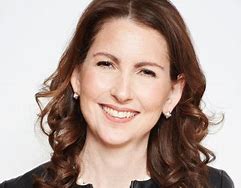
by James C. Sherlock
I wrote in a previous post of the astonishing record of New York City’s Success Academies in achieving the highest scores in the state of New York on that state’s standardized tests with some of the most economically disadvantaged students.
I write this time with the great news that there is absolutely no impediment to implementing the Success Academy model in Virginia schools.
I will also offer a very straightforward way to get there.
Virginia’s regs based on achieving standards, not how
I have reviewed the Virginia’s Board of Education’s Regulations Establishing Standards for Accrediting Public Schools in Virginia.
The methodologies for achieving the SOL-based standards are left by the state to each individual school.
Virginia Schools that Need Help
I have from VDOE databases identified elementary schools that both draw from similar urban demographic populations as New York City’s Success Academy and are failing their students based on SOL results.
They are clustered in Danville, Norfolk, Richmond and Newport News.
I suggest these schools form a coalition through their districts and pursue together conversion to the Success Academy model with the assistance of Success Academy itself, which generously offers largely free assistance to such efforts.
There is no reason in Virginia for these failing elementary schools to seek designation as charter schools or permission from the VDOE to make the conversion.
I also suggest that any funding necessary for the effort can be successfully requested from the Bill and Melinda Gates Foundation or similar foundations. Success Academy can be consulted on that matter as well.
The Success Academy Education Institute welcomes teachers and administrators to share its processes and results.
The worst performing elementary schools on at least one of 2019 SOL tests in English Reading, History and Social Sciences, Science and Math, the VBOE’s standard of achievement, are in Alexandria (1), Arlington (1), Danville (4), Fairfax County (1), Harrisonburg (1), Henrico (3), Newport News (4), Norfolk (5), Petersburg (2), Portsmouth (1), and Richmond (6).
Of those, the schools that had lowest grades in two of the tests were:
- Edwin A. Gibson Elementary Danville
- Horace H. Epes Elementary Newport News
- Lindenwood Elementary, Norfolk
- Southside STEM Academy at Campostella , Norfolk
Of those, the schools that had the lowest grades in at least 3 of the 4 testing categories were:
- Woodrow Wilson (Danville),
- Jacox Elementary (Norfolk),
- James Monroe Elementary (Norfolk),
- St. Helena Elementary (Norfolk),
- Blackwell Elementary (Richmond),
- Fairfield Court Elementary (Richmond),
- George W. Carver Elementary (Richmond) and
- Woodville Elementary (Richmond).
I urge them all to make the change for next year. Twelve schools is a large enough number for the results to be statistically significant in a pilot program and they will not skewed by a badly implemented plan in one or two schools.
The Success Academy Model
Get a welcome from the scholars of Success Academy.
Go to https://www.successacademies.org/our-approach-elementary-school/ and click on the virtual school video to see Eva Moskowitz discuss her schools and the philosophies that guide them.
Close that video on the website and see “Our Culture, How We Operate, Literacy, Math, Critical Thinking, The Whole Child and Beyond our Walls” by clicking on each in the scale along the top.
See Lessons in Action Videos Read Aloud, Number Stories, Aerodynamics and Soccer Practice
See what they are doing with remote learning at SA Remote 2.0.
The Success Academy Education Institute welcomes teachers and administrators to share their process and its results.
See Success Academy Robertson Center teacher training academy.
See K-12 Remote Learning Resources
Read curriculum guides for Elementary school, Middle school and High school
Just Do It
For the School Boards and Superintendents of Danville, Norfolk, Richmond and Newport News schools, there is everything to gain and no excuses available.
I recommend they do it in preparation for next year.

Leave a Reply
You must be logged in to post a comment.